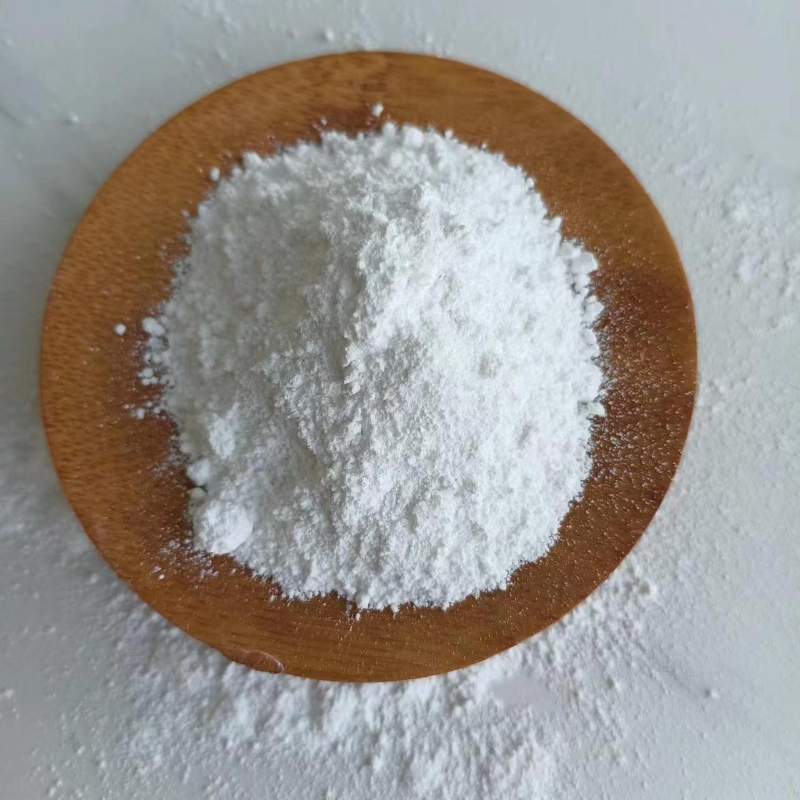-
Categories
-
Pharmaceutical Intermediates
-
Active Pharmaceutical Ingredients
-
Food Additives
- Industrial Coatings
- Agrochemicals
- Dyes and Pigments
- Surfactant
- Flavors and Fragrances
- Chemical Reagents
- Catalyst and Auxiliary
- Natural Products
- Inorganic Chemistry
-
Organic Chemistry
-
Biochemical Engineering
- Analytical Chemistry
- Cosmetic Ingredient
-
Pharmaceutical Intermediates
Promotion
ECHEMI Mall
Wholesale
Weekly Price
Exhibition
News
-
Trade Service
Editor’s note iNature is China’s largest academic official account.
It is jointly created by the doctoral team of Tsinghua University, Harvard University, Chinese Academy of Sciences and other units.
The iNature Talent Official Account is now launched, focusing on talent recruitment, academic progress, scientific research information, interested parties can Long press or scan the QR code below to follow us
.
iNature drug-induced liver injury (DILI) is the main cause of acute liver failure, and the treatment of DILI remains a challenge
.
MG53 is a muscle-derived tissue repair protein, and its physiological role in preventing DILI has not been studied
.
On November 1, 2021, Army Military Medical University Zeng Chunyu, Chen Ken and Ohio State University Ma Jianjie jointly published an online report entitled "Membrane-delimited signaling and cytosolic action of MG53 preserve hepatocyte integrity during" Journal of Hepatology (IF=25) “drug-induced liver injury” research paper, this study in mice systemic administration of exogenous administration of recombinant MG53 protein (rhMG53) can be prevented and treated by exposure to acetaminophen tetracycline, concanavalin A, tetrachloride DILI induced by carbonization or thioacetamide
.
MG53 in the circulation protects liver cells from damage by directly interacting with MLKL on the plasma membrane
.
Extracellular MG53 can enter liver cells and act as an E3 ligase to reduce RIPK3-mediated MLKL phosphorylation and membrane translocation
.
In conclusion, this study shows that the dual role of MG53's membrane separation signal and cytosolic effect effectively maintains liver cell integrity during DILI
.
rhMG53 may be a potential treatment option for patients with DILI
.
Drug safety is a major health issue affecting the public, the pharmaceutical industry, regulatory agencies, and doctors
.
Drug-induced liver injury (DILI) is the most common reason for abandoning a compound in early development or withdrawing it from the market after approval
.
Many drugs affect liver function; herbs and dietary supplements commonly used around the world often cause DILI
.
Acetaminophen (APAP) is the most widely used analgesic and antipyretic drug.
Because it may cause severe liver damage, there is a dose limitation
.
Except for n-acetylcysteine for APAP poisoning, glucocorticoids for immune-related reactions, and ursodeoxycholic acid for cholestatic liver injury, DILI has no effective treatment
.
Discovery of interventions to treat DILI and prevent it from progressing to liver failure is of great value to public health
.
Mitsugumin 53 (MG53, also known as Trim72) plays a vital role in cell membrane repair
.
MG53 is mainly expressed in skeletal muscle and heart, but low in kidney and lung
.
Previous studies have shown that in rodent and large animal models, systemic administration of recombinant human MG53 (rhMG53) protein can protect skeletal muscle, heart, lung, and kidney from damage
.
Since the liver does not produce endogenous MG53, the scientific community has long believed that MG53 has no physiological role in protecting the liver.
.
In this study, unexpected findings were presented.
These findings indicate that MG53, as a myocytokine, plays an important role in preventing liver damage, and rhMG53 may have potential treatment in maintaining liver cell integrity during DILI Value
.
Reference message: https://#%20
It is jointly created by the doctoral team of Tsinghua University, Harvard University, Chinese Academy of Sciences and other units.
The iNature Talent Official Account is now launched, focusing on talent recruitment, academic progress, scientific research information, interested parties can Long press or scan the QR code below to follow us
.
iNature drug-induced liver injury (DILI) is the main cause of acute liver failure, and the treatment of DILI remains a challenge
.
MG53 is a muscle-derived tissue repair protein, and its physiological role in preventing DILI has not been studied
.
On November 1, 2021, Army Military Medical University Zeng Chunyu, Chen Ken and Ohio State University Ma Jianjie jointly published an online report entitled "Membrane-delimited signaling and cytosolic action of MG53 preserve hepatocyte integrity during" Journal of Hepatology (IF=25) “drug-induced liver injury” research paper, this study in mice systemic administration of exogenous administration of recombinant MG53 protein (rhMG53) can be prevented and treated by exposure to acetaminophen tetracycline, concanavalin A, tetrachloride DILI induced by carbonization or thioacetamide
.
MG53 in the circulation protects liver cells from damage by directly interacting with MLKL on the plasma membrane
.
Extracellular MG53 can enter liver cells and act as an E3 ligase to reduce RIPK3-mediated MLKL phosphorylation and membrane translocation
.
In conclusion, this study shows that the dual role of MG53's membrane separation signal and cytosolic effect effectively maintains liver cell integrity during DILI
.
rhMG53 may be a potential treatment option for patients with DILI
.
Drug safety is a major health issue affecting the public, the pharmaceutical industry, regulatory agencies, and doctors
.
Drug-induced liver injury (DILI) is the most common reason for abandoning a compound in early development or withdrawing it from the market after approval
.
Many drugs affect liver function; herbs and dietary supplements commonly used around the world often cause DILI
.
Acetaminophen (APAP) is the most widely used analgesic and antipyretic drug.
Because it may cause severe liver damage, there is a dose limitation
.
Except for n-acetylcysteine for APAP poisoning, glucocorticoids for immune-related reactions, and ursodeoxycholic acid for cholestatic liver injury, DILI has no effective treatment
.
Discovery of interventions to treat DILI and prevent it from progressing to liver failure is of great value to public health
.
Mitsugumin 53 (MG53, also known as Trim72) plays a vital role in cell membrane repair
.
MG53 is mainly expressed in skeletal muscle and heart, but low in kidney and lung
.
Previous studies have shown that in rodent and large animal models, systemic administration of recombinant human MG53 (rhMG53) protein can protect skeletal muscle, heart, lung, and kidney from damage
.
Since the liver does not produce endogenous MG53, the scientific community has long believed that MG53 has no physiological role in protecting the liver.
.
In this study, unexpected findings were presented.
These findings indicate that MG53, as a myocytokine, plays an important role in preventing liver damage, and rhMG53 may have potential treatment in maintaining liver cell integrity during DILI Value
.
Reference message: https://#%20







